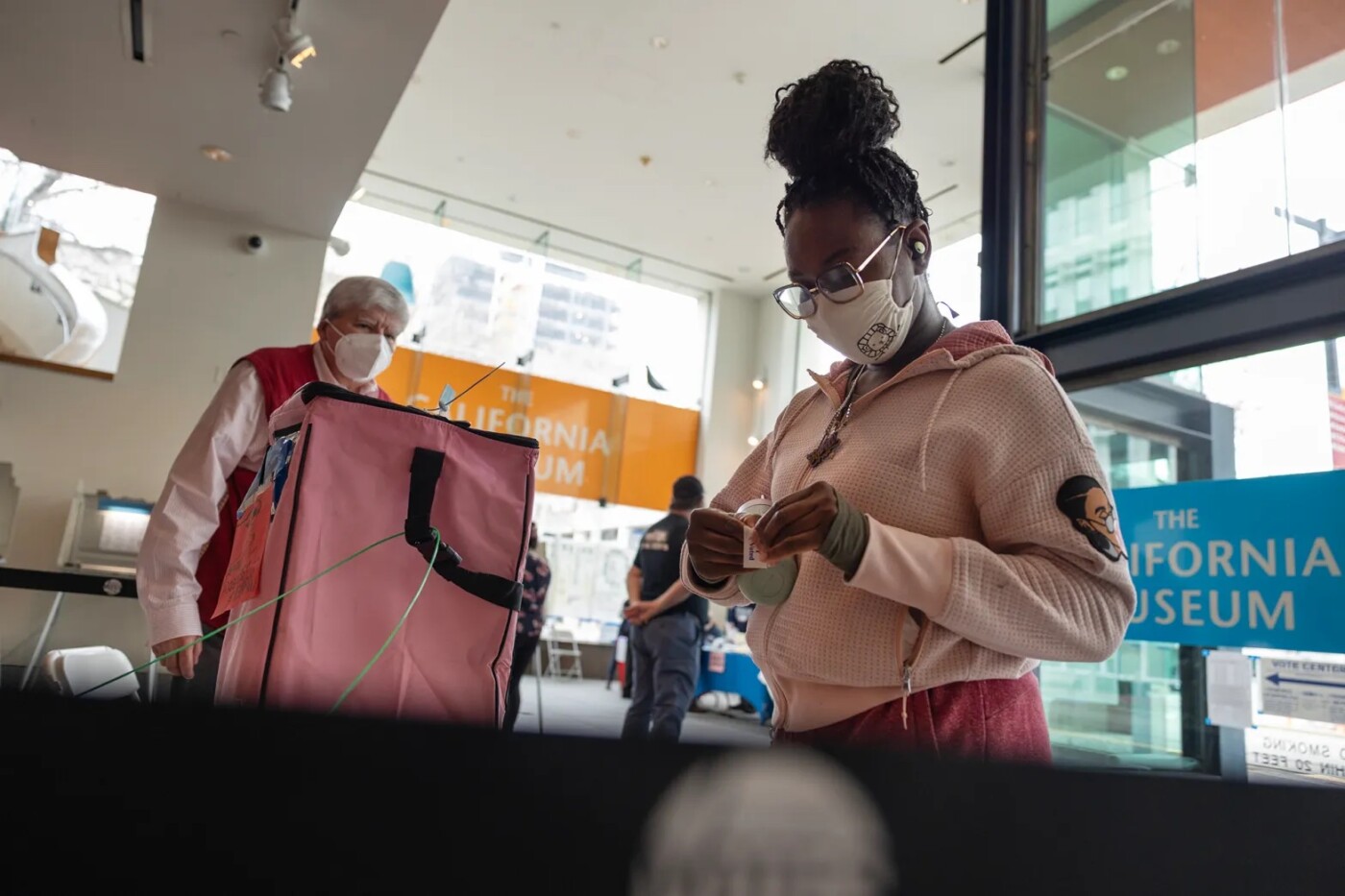The latest official tally from the Secretary of State’s office shows that 4.8 million ballots have been counted from California’s primary, with 2.5 million still to go.
Based on the late Friday numbers, the total of nearly 7.3 million votes means a turnout of about 33%, well below the norm for presidential primaries, but not the record low that some analysts projected based on early numbers.
It also means that it’s going to be a while before some results are finalized, likely amplifying complaints that it takes too long to count votes in California. While voting by mail has been happening for a month, as long as ballots were postmarked by last Tuesday and they arrive at elections offices by this Tuesday, they will be counted. As expected, the votes being counted after primary day are trending more Democratic and younger.
While the U.S. Senate and other races have been called by media organizations, and candidates have declared victory or conceded in others, many other closer contests and the only statewide ballot measure, Proposition 1, still hang in the balance. The Secretary of State has until April 12 to certify the results.
At the same time, the state has been trying to increase voter registration: The rate among all eligible voters is now at 83%, up from 68% in 2008. But those new voters are less likely to regularly cast ballots, which leads to a lower percentage turnout.
A new Public Policy Institute of California brief points out that automatic registration through the Department of Motor Vehicles has increased the registration rate by four percentage points since 2018.
But while the changes were designed to make the electorate more representative of California’s diversity, there have been only small increases for historically underrepresented groups, the report says.
And new registrants tend to be less familiar with elections and are less likely to actually vote. In 2020, the turnout gap between them and voters overall was similar to the existing gap between voters older than 65 and those younger than 25, who are also less likely to vote.
- The report: “New registrants… have less experience with the political system and need more engagement to become regular voters.”
Campaign finance: The state’s campaign finance watchdog has a new leader. Late Friday, Gov. Gavin Newsom announced he has appointed Adam Silver as chairperson of the Fair Political Practices Commission. Silver, a Democrat and chief counsel for the Assembly Legislative Ethics Committee since 2018 and the commission counsel from 2017 to 2018, replaces Richard Miadich, chairperson since 2019. Assembly Speaker Robert Rivas called Silver “a true ambassador for compliance.” The position does not require Senate confirmation and pays $241,728 a year.
